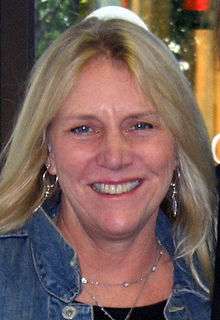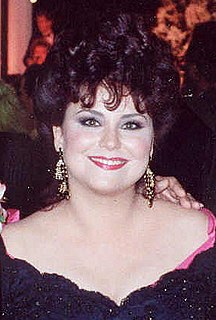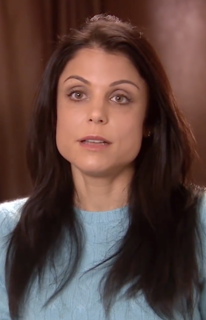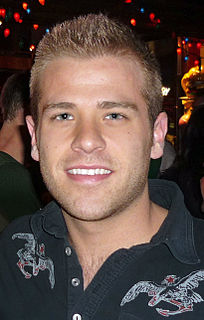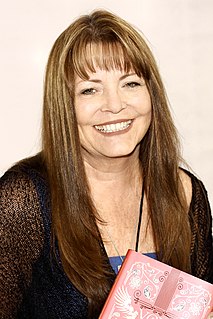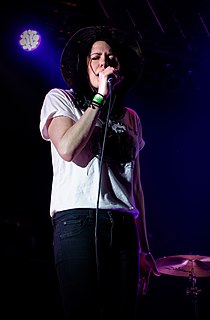A Quote by Michael Ondaatje
Once I've discovered the story, I might restructure it, maybe move things around, set up a clue that something is going to happen later, but that happens much later in an editorial capacity.
Related Quotes
You want to have a song that people will listen to and go, 'Oh, yeah! That reminds me of something in my life,' or, 'something I'm currently going through,' or maybe something happens later and you hear the song and go, 'Wow! That really was telling a story that I can relate to now.' That's my hope.
One easy mistake to make with the first novel is to expand the short story. Some things are better as a story; you cannot dilute things into a novel. I think the first hundred pages of a novel are very important. That's where you set things up: the world, the characters. Once you've set that up, it'll be much easier.
I love horror. I love 'The Shining,' 'Friday the 13th,' 'Halloween,' all those kinds of things. I love zombies, especially '28 Days Later' and '28 Weeks Later,' where the zombies are going faster than the George Romero ones. I love being scared; there's something that's awesome about your heart rate going up like that.
Why don't we all just go crazy when we know were going to croak? Because the mind's a monkey. You put things in departments and you go ahead. You go on and plan for the future and assume that the future's going to work out okay. Yet we know that sooner or later we're all going to be eating worms, whether it's fifty years or sixty. It might be tomorrow. It might happen today.
One of the things that really impressed me about Anna Karenina when I first read it was how Tolstoy sets you up to expect certain things to happen - and they don't. Everything is set up for you to think Anna is going to die in childbirth. She dreams it's going to happen, the doctor, Vronsky and Karenin think it's going to happen, and it's what should happen to an adulteress by the rules of a nineteenth-century novel. But then it doesn't happen. It's so fascinating to be left in that space, in a kind of free fall, where you have no idea what's going to happen.

